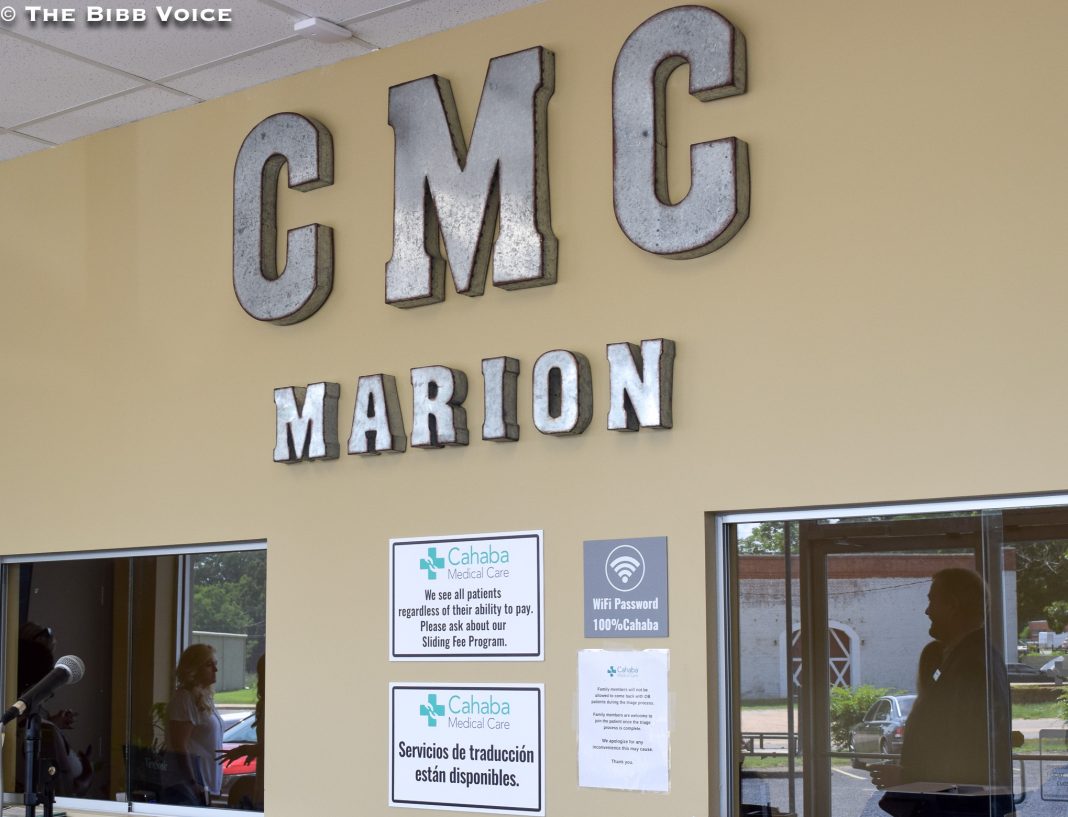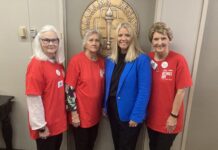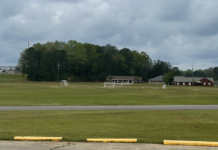July 18, 2019 11:00 a.m.
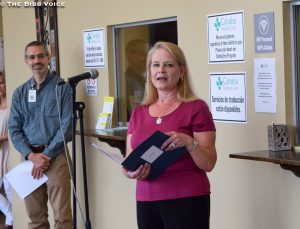
Lisa Mariani, Regional Administrator of Health Resources & Services Administration (HRSA) Office of Regional Operations announced this morning in Marion, AL that Cahaba Medical Care has been awarded a $750,000 RRPD grant. This grant is part of a larger $20 million multi-year initiative by HRSA to expand the physician workforce in rural areas by developing new, sustainable residency programs in family medicine, internal medicine, and psychiatry. The recipients of the awards include rural hospitals, community health centers, health centers operated by the Indian Health Service, Indian tribes or tribal organizations, and schools of medicine.
Dr. John B. Waits announced that this grant will fund a physician resident training program in co-operation with UAB, Cahaba Medical’s Perry County office in Marion and the John Paul Jones hospital in Camden and establishes the second FQHC program to be operated by Cahaba Medical Care. CMC already operates a physician training program in partnership with UAB on the Bibb Medical Center campus in Centreville in partnership with UAB. “We know from decades of research, as well as from our own experience in Bibb County, that physicians who spend their critical, formative training years, actually practicing and training in rural, underserved areas, are as much as five times more likely to practice in a rural area. With initiatives like this, we hope to do our part in changing the rural physician workforce shortage for the good” says Dr. Waits, Residency Director of the Cahaba-UAB Family Medicine Residency, and CEO of Cahaba Medical Care.
Cahaba Medical Care (CMC) is a 501(c)(3) nonprofit, Federally Qualified Community Health Center (FQHC) and is accredited as a Patient-Centered Medical Home (PCMH) by the National Committee for Quality Assurance (NCQA) and the Joint Commission. CMC currently operates 11 sites throughout central Alabama located in Bibb, Chilton, Jefferson and Perry Counties. CMC is also a Teaching Health Center (THCGME) Family Medicine Residency with 12 residents per year, including five rural residents based in Centerville and seven urban residents based in the underserved community of West End in Birmingham. For more information, please visit www.cahabamedicalcare.com.
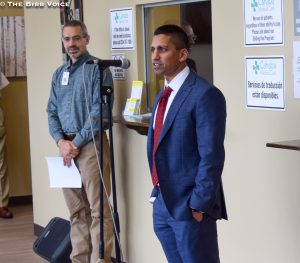
Dr. Irfan Asif, Professor and Chair of the Department of Family and Community Medicine of the UAB School of Medicine talked about the shortage of primary care physicians in the State of Alabama and UAB’s commitment to addressing the need. This program, and the partnership with Cahaba Medical Care, to train family care physicians is intended to help fill that gap according to Asif.
The purpose of the Rural Residency Planning and Development grant program is to develop new rural residency programs or Rural Training Tracks in family medicine, internal medicine and psychiatry to support expansion of the physician workforce in rural areas. Rural residency programs are allopathic and osteopathic physician residency training programs that primarily train in rural communities, place residents in rural locations for greater than 50 percent of their training and focus on producing physicians who will practice in rural communities.
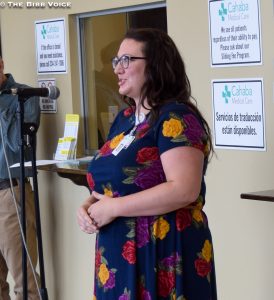
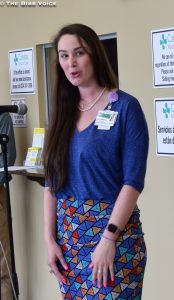
Dr. Waits also introduced Drs. Laura Hyer and Dr. Brooke Carroll. Both primary care physicians were trained through the CMC program and will be working in Perry and Wilcox county as primary care providers. Dr. Hyer said the Marion office has been fully operational since November 2018. The Marion office is located at 1303 Washington Street, Marion, AL.
About HRSA: HRSA, an agency of the U.S. Department of Health and Human Services, is the primary federal agency for improving health care to people who are geographically isolated, economically or medically vulnerable. HRSA programs help those in need of high quality primary health care, people living with HIV/AIDS, pregnant women and mothers. HRSA also supports the training of health professionals, the distribution of providers to areas where they are needed most and improvements in health care delivery.
About UAB: Known for its innovative and interdisciplinary approach to education at both the graduate and undergraduate levels, the University of Alabama at Birmingham is an internationally renowned research university and academic medical center, as well as Alabama’s largest employer, with some 23,000 employees, and has an annual economic impact exceeding $7 billion on the state. The five pillars of UAB’s mission include education, research, patient care, community service and economic development. UAB is a two-time recipient of the prestigious Center for Translational Science Award. Learn more at www.uab.edu. UAB: Powered by will.


